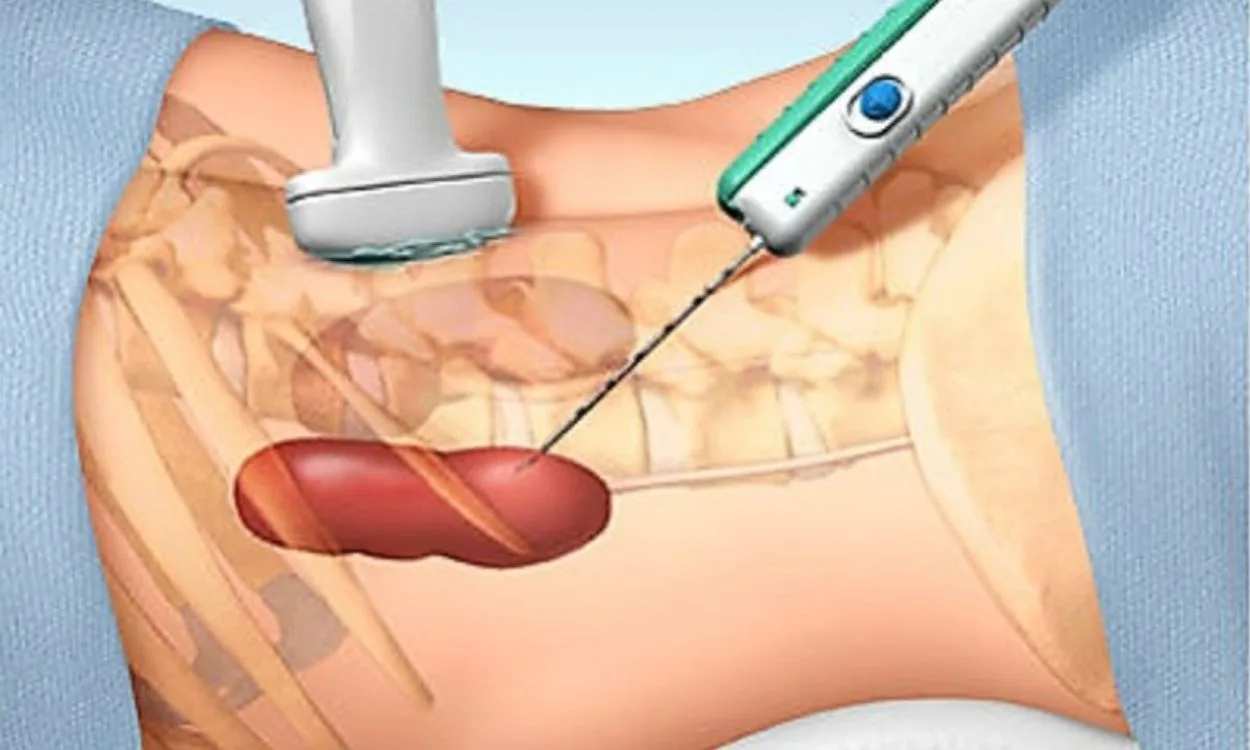What is a Kidney Biopsy and Why is it Performed?
A kidney biopsy, also known as a renal biopsy, is a medical procedure where a small piece of kidney tissue is removed and examined under a microscope to diagnose various kidney conditions and guide treatment. It is typically performed when other tests, such as blood and urine tests, imaging studies, and physical examination, are unable to provide a clear diagnosis of a kidney disorder. Here’s why and how a kidney biopsy is performed:
Why is a Kidney Biopsy Performed?
- Diagnosing Kidney Diseases: A kidney biopsy is crucial for diagnosing various kidney diseases, including glomerulonephritis, lupus nephritis, IgA nephropathy, and diabetic nephropathy.
- Assessing Kidney Damage: It helps in assessing the extent and type of damage to the kidneys, which is essential for determining the appropriate treatment plan.
- Monitoring Disease Progression: For individuals with known kidney conditions, a biopsy can be used to monitor the progression of the disease and the effectiveness of treatment.
- Identifying Rejection in Transplanted Kidneys: In individuals who have undergone a kidney transplant, a biopsy can help in identifying signs of rejection and guiding subsequent therapeutic interventions.
How is a Kidney Biopsy Performed?
- Preparation: Before the procedure, the patient’s medical history, medications, and allergies are reviewed. Blood tests are performed to assess the blood’s ability to clot.
- Procedure: The patient is positioned lying on their stomach or side, and the skin over the kidney area is cleaned and numbed with a local anesthetic. Using imaging guidance, a thin biopsy needle is inserted through the skin and into the kidney to obtain a small tissue sample.
- Post-procedure Care: After the biopsy, the patient is monitored for several hours to ensure there are no complications, such as bleeding or pain. Rest and limited physical activity are typically recommended for the following 24 hours.
After the Biopsy
- Results: The kidney tissue sample is examined under a microscope by a pathologist to identify any abnormalities or specific kidney diseases.
- Treatment Plan: The biopsy results guide the healthcare team in formulating an appropriate treatment plan tailored to the specific kidney condition.
This detailed understanding of the kidney biopsy procedure and its significance in diagnosing and managing kidney diseases should reassure individuals who may be recommended to undergo this procedure.
Now that you have a clearer understanding of kidney biopsies, it’s important to prioritize your overall health and well-being. If you’re looking to take proactive steps towards maintaining a healthy lifestyle and managing any kidney-related concerns, consider exploring the Fitpaa app.
With Fitpaa, you can access personalized health and fitness plans designed to optimize your overall well-being, including lifestyle modifications and tailored nutrition and exercise guidance. The Fitpaa Capsule, specifically designed to cater to individual health goals, is a comprehensive solution to support your journey towards a healthier you.
Embrace the opportunity to transform your wellness journey with Fitpaa and experience the joy of achieving your health and fitness goals with guaranteed results. Remember, your well-being is our mission!
So, why wait? Embrace a healthier future by downloading the Fitpaa app today and take the first step towards a balanced and fulfilling lifestyle!









